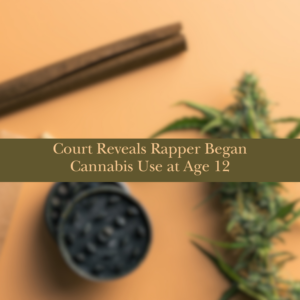Can Cannabis Stores Legally Advertise on Television in Maine?

Navigating Cannabis Ads on Maine TV: Strict Rules and FCC Concerns
With cannabis having been legal in Maine for almost eight years, the landscape for advertising cannabis products, particularly on television, remains complex and tightly regulated. Despite legalization, pot shops face significant restrictions when it comes to marketing their products on broadcast media, due to both state-specific regulations and federal laws that still classify marijuana as an illegal substance.
Advertising Regulations in Maine
Cannabis retailers in Maine can legally advertise their products across various media platforms, including television, radio, and print. However, these advertisements are governed by strict guidelines established by the Office of Cannabis Policy (OCP). One of the primary rules is that products cannot be used on camera in advertisements. More critically, the ads must not be targeted towards minors or be designed in a way that appeals to them.
Ted, a viewer, raised a question to the CBS13 I-Team regarding the legality and regulation of these ads, reflecting a common curiosity among Maine residents. According to the OCP’s guidelines, advertisements must be placed on channels and at times where the majority of the audience is over 21 years old. This ensures that the content is age-appropriate and reduces the likelihood of underage exposure to cannabis advertising.
FCC Concerns and Federal Restrictions
The Federal Communications Commission (FCC) plays a crucial role in regulating broadcast content, including advertisements. Since cannabis remains illegal under federal law, many TV and radio stations that broadcast across state lines are cautious about airing cannabis-related ads. They fear potential fines or other penalties from the FCC, which could be imposed if an ad were to be received in a state where marijuana is not legal.
This federal restriction adds another layer of complexity for broadcasters and advertisers alike. Even in states like Maine, where cannabis is legal, the overlapping jurisdictions and conflicting laws between state and federal levels create a challenging environment for cannabis advertising. CBS13, for instance, follows a cautious approach, allowing medical marijuana ads under stringent guidelines and ensuring these ads do not reach audiences in states where marijuana remains illegal.
Challenges and Considerations for Broadcasters
The advertising of cannabis products on television requires broadcasters to navigate a fine line between adhering to state laws and avoiding federal penalties. This has led to a cautious approach from many media companies, with some opting to avoid cannabis advertisements altogether, despite the potential revenue they could generate.
Broadcast companies must carefully select the content and timing of cannabis ads, verify that the ads do not feature the actual use of the product, and ensure that the programming blocks in which these ads appear are not likely to be watched by minors. This level of scrutiny reflects the ongoing tension and uncertainty in the regulatory landscape for cannabis in the United States.
Future Outlook
As the legal status of cannabis continues to evolve, with more states moving towards legalization, the regulatory framework for cannabis advertising is likely to undergo further changes. Industry stakeholders are closely watching developments, including any potential shifts in federal policy, which could dramatically alter the advertising landscape.
For now, cannabis businesses in Maine and elsewhere must navigate a complex web of state and federal regulations, balancing the need to reach potential customers with the legal risks associated with cannabis advertising. As this sector grows and matures, the advertising strategies and regulatory compliance measures of cannabis companies will continue to be a crucial aspect of their business operations.











